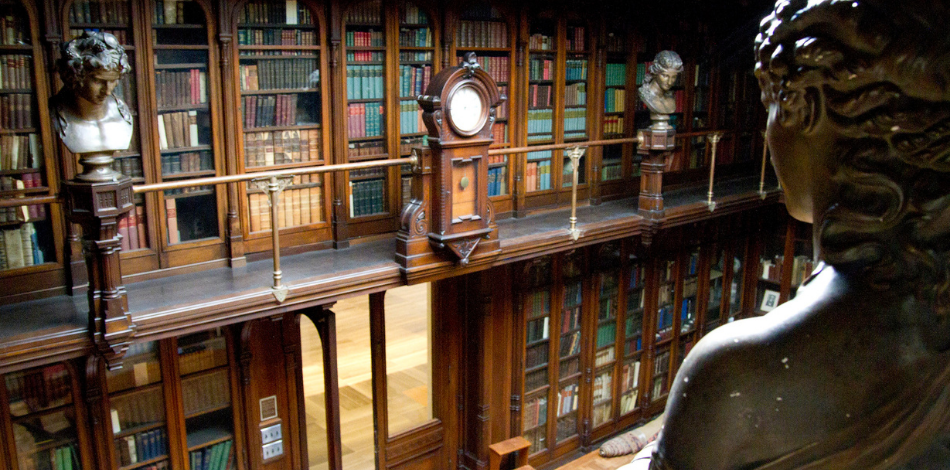Researching the Catholic Inquisitions in the Penn Libraries Collections

Since the beginning of 2021 the Penn Libraries has added over 200 works, most published recently, which concern the Inquisitions carried out by agencies of the Roman Catholic Church since the European Middle Ages. As the use of plural implies, there have been multiple Inquisitions carried out by the Church over time. The first, known as the Medieval Inquisition, confronted the Catharist and Waldensian heresies that threatened the authority of the Church and its social order in the 12th and 13th centuries in parts of what are now France, Germany, and northern Italy. It included a military campaign, the Albigensian Crusade, that crushed Catharism in southern France. Probably the best known Inquisition, the Spanish Inquisition, originated in the late 15th century under the Catholic monarchs Ferdinand and Isabella. A Portuguese Inquisition was formally established in 1536 and, like the Spanish institution, spread overseas, to possessions in the Americas and Asia. In 1542 the Papacy developed the Roman Inquisition, primarily as a response to the rise of Protestantism. It was active mainly in the Italian peninsula, and importantly oversaw the elaboration of official doctrine in matters of theology, morality, and censorship.
The additions recently made to the Libraries general collections complement and support the extraordinary text and manuscript holdings of the Henry Charles Lea Library, part of the Kislak Center for Special Collections, Rare Books, and Manuscripts. Besides his many public roles, including leadership of the University of Pennsylvania Board of Overseers who initiated the building of the first central library (now known as the Fisher Fine Arts Library), Lea was the first great English-language historian of the Inquisition(s). His library is one of Penn's most significant collections and a preeminent resource on the history of the medieval and early modern Catholic Church and of all related matters, including magic, witchcraft, alchemy, heresy, and heretics. Among his many works, A History of the Inquisition of Spain was his most controversial. For decades scholars have debated whether or not it displays anti-Catholic or anti-Spanish bias. The book is still read today; in fact, an important second edition in Spanish was published in 2020.
Some of the newly acquired books present records of specific inquisitorial proceedings; others analyze and interpret individual trials. For example, among the Portuguese-language group, there is a work that tells the story of an Angola-born woman, forced into slavery and taken to Salvador, Brazil, accused of bigamy, and sent to Lisbon for trial.
These books also include studies examining the role and experiences of women caught up in the Inquisition, covering issues like sexuality and witchcraft. Here are just a few examples of these titles: Gendered Crime and Punishment: Women and/in the Hispanic Inquisitions; Magic, and Witchcraft: Cultural Exchanges from the Twelfth to Eighteenth Century; Vivencias, Emociones y Perfiles Femeninos: Judeoconversas e Inquisición en Aragón en el Siglo XV; Donne e Inquisizione.
Additionally, our recent acquisitions cover topics like the history of the Inquisition in specific regions of Italy, the perception of witchcraft and its place in theology, the roles (as officials and the accused) of the various religious orders, Protestant versions of the Inquisition, and the evolution of book censorship.
Along with nonfiction, the Penn Libraries has also acquired a number of fictional titles on the topic. The Inquisitions regularly appear in popular fiction, particularly in western Europe. Recent acquisitions include such titles as Les Parfaits: Les Dernières Heures des Cathares, which is set during the inquisitorial crusade against the Cathar heresy, and G. Willow Wilson’s The Bird King, a novel about “a concubine in the royal court of Granada, the last emirate of Muslim Spain,” whose freedom is threatened by the conquering Christians and their Inquisition.
Written in various European languages, these latest additions to the Penn Libraries collections help ensure that we are collecting as comprehensively as possible in an area that is one of the Libraries’ most notable strengths. Since the Inquisitions remain an important part of historical research in the medieval and early modern periods, the Penn Libraries intend to continue to collect materials related to this topic at the same intensive level going forward.
Date
November 24, 2021
